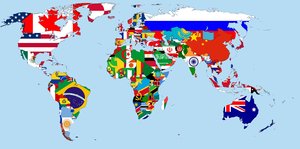
Localization is a fundamental service for businesses looking to expand globally. Not only will these businesses need to have their material translated into several different languages, but they will also need to have their material localized if a product or service is to be used in a specific region. This is often times included in the translation process, although clients will need to specifically indicate that they are requesting this service as well as the flavor for the target language(s). For example, if a company in Spain wishes to translate their material for English-speaking markets, they will need to consider which flavor of English they will use. If their product or service will mainly be used within Europe, it is likely that they will use the U.K. flavor of English due to the number of these English speakers within the region.
One of the main advantages of this service is the personalized attention to your clients, as you are able to communicate with them in a language they understand.





